-
 Bitcoin
Bitcoin $83,324.3682
-0.96% -
 Ethereum
Ethereum $1,818.1316
-2.08% -
 Tether USDt
Tether USDt $0.9999
0.00% -
 XRP
XRP $2.0459
-1.77% -
 BNB
BNB $602.9670
0.61% -
 Solana
Solana $118.6811
-4.36% -
 USDC
USDC $1.0000
-0.01% -
 Dogecoin
Dogecoin $0.1647
-2.29% -
 Cardano
Cardano $0.6489
-2.70% -
 TRON
TRON $0.2354
-0.80% -
 Toncoin
Toncoin $3.7675
-5.81% -
 UNUS SED LEO
UNUS SED LEO $9.4264
0.19% -
 Chainlink
Chainlink $12.9734
-3.40% -
 Stellar
Stellar $0.2619
-1.17% -
 Avalanche
Avalanche $18.3750
-2.81% -
 Sui
Sui $2.3033
-0.83% -
 Shiba Inu
Shiba Inu $0.0...01223
0.28% -
 Hedera
Hedera $0.1629
-0.49% -
 Litecoin
Litecoin $83.8176
2.52% -
 Polkadot
Polkadot $4.0062
-0.84% -
 MANTRA
MANTRA $6.3682
2.59% -
 Bitcoin Cash
Bitcoin Cash $304.3215
-0.10% -
 Bitget Token
Bitget Token $4.5315
-0.92% -
 Dai
Dai $1.0001
0.00% -
 Ethena USDe
Ethena USDe $0.9998
0.00% -
 Pi
Pi $0.6280
-8.11% -
 Hyperliquid
Hyperliquid $11.9038
-8.61% -
 Monero
Monero $214.1930
-0.70% -
 Uniswap
Uniswap $5.9929
-0.74% -
 Aptos
Aptos $5.2227
-0.74%
What can SAND coin be used for? A comprehensive analysis of the application scenarios of SAND coin
SAND coin serves as the gateway for diverse activities in The Sandbox metaverse, enabling virtual land ownership, in-game purchases, staking, governance, NFT creation, cross-ecosystem interoperability, and metaverse development.
Oct 06, 2024 at 05:00 am
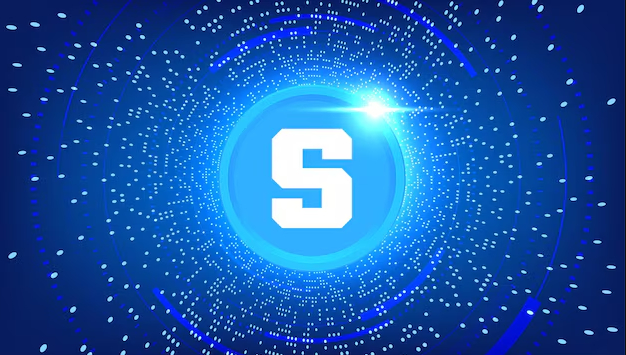
Comprehensive Analysis of SAND Coin's Application Scenarios
1. Virtual Land and Estate Ownership
SAND is the native token of The Sandbox, a blockchain-based virtual world where users can purchase, build, and monetize virtual land and assets. Holders of SAND can use the token to:
- Buy and sell virtual land parcels
- Create their own virtual experiences, games, and art exhibits
- Access exclusive virtual events
- Govern the platform through the SAND Decentralized Autonomous Organization (DAO)
2. In-Game Currency
SAND serves as the in-game currency within The Sandbox metaverse. It is used to:
- Purchase assets and items within the virtual world
- Participate in games and challenges
- Earn rewards for contributing to The Sandbox ecosystem
3. Staking and Reward Generation
Users can stake their SAND tokens to earn additional rewards and benefits. Staked tokens generate a passive income and contribute to the security and liquidity of the network.
4. Governance and Voting Rights
SAND is the governance token of The Sandbox. Holders of SAND can vote on proposals and participate in the decision-making process related to the platform's future development.
5. Non-Fungible Token (NFT) Creation and Trading
The Sandbox allows users to create and trade NFTs within the virtual world. Artists and creators can design and sell unique digital assets using SAND as payment and transaction fees.
6. Interoperability and Cross-Ecosystem Use
The Sandbox is developing partnerships with other virtual worlds and gaming platforms. SAND may be used as a cross-ecosystem currency to facilitate interoperability and enable the exchange of assets between different metaverse environments.
7. Metaverse Development and Investment
Businesses and investors can use SAND to contribute to the growth and development of The Sandbox metaverse. They can purchase virtual land, create experiences, and participate in the governance of the platform to shape its future.
Conclusion
SAND coin offers multiple utility and application scenarios within The Sandbox metaverse and beyond. As a virtual land ownership token, in-game currency, governance tool, and cross-ecosystem asset, SAND provides users with various opportunities to participate in and benefit from the growing metaverse economy. Whether you are an artist, gamer, investor, or developer, SAND has the potential to unlock new possibilities and drive innovation within the virtual world realm.
Disclaimer:info@kdj.com
The information provided is not trading advice. kdj.com does not assume any responsibility for any investments made based on the information provided in this article. Cryptocurrencies are highly volatile and it is highly recommended that you invest with caution after thorough research!
If you believe that the content used on this website infringes your copyright, please contact us immediately (info@kdj.com) and we will delete it promptly.
- FDUSD, BTC, TUSD, SEI, and LINK are the top 5 virtual asset-related keywords attracting the most interest
- 2025-04-03 15:45:12
- Bitcoin Pepe (BPEP) could hit $250 in four years
- 2025-04-03 15:45:12
- TAO Breaks Resistance, HYPE Dips 14%— Yet BlockDAG PullS in $210M Following Keynote 3 Launch!
- 2025-04-03 15:40:13
- Dogecoin (DOGE) Price Prediction: An Analyst Highlights a Bullish Divergence, Suggesting a Rally Could Be in the Cards
- 2025-04-03 15:40:13
- XRP Navigates Volatile Waters, Targeting a Breakout From Its Range
- 2025-04-03 15:35:27
- Meme Cryptocurrency Dogecoin DOGE/USD Falls After President Donald Trump's Tariff Shock, Extending Weekly Losses to Over 16%
- 2025-04-03 15:35:27
Related knowledge
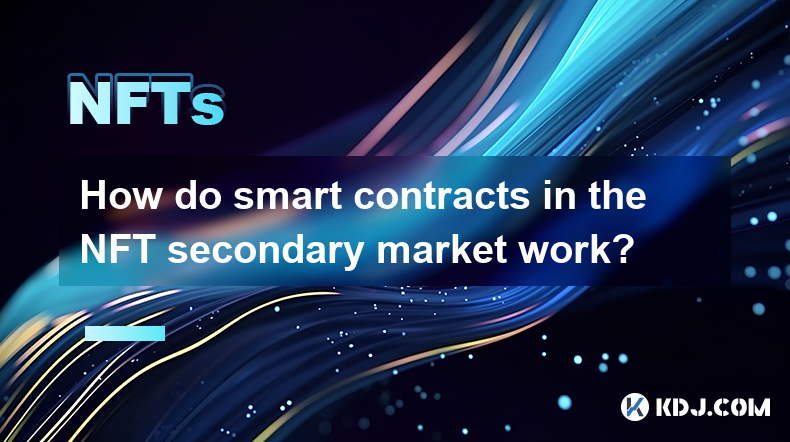
How do smart contracts in the NFT secondary market work?
Apr 03,2025 at 07:14am
Smart contracts play a pivotal role in the NFT secondary market, facilitating seamless transactions and enforcing predefined rules. These self-executing contracts with the terms of the agreement directly written into code are stored on the blockchain. In the context of NFTs, smart contracts automate the buying, selling, and transferring of digital asset...
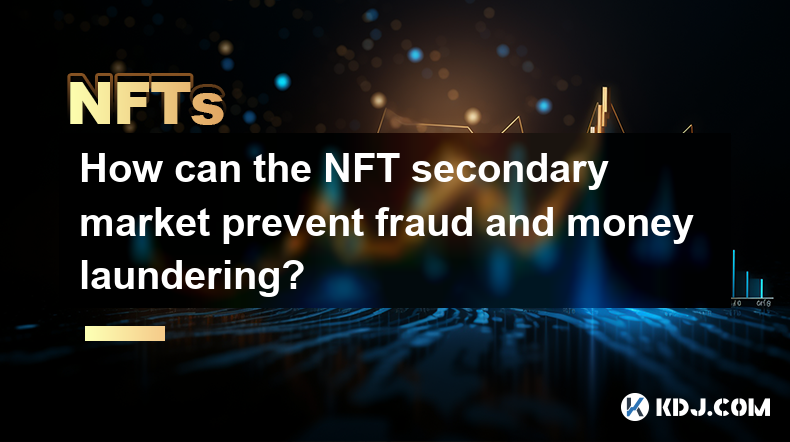
How can the NFT secondary market prevent fraud and money laundering?
Apr 03,2025 at 08:35am
The NFT secondary market has become a thriving hub for digital art and collectibles, but it also faces challenges in preventing fraud and money laundering. To tackle these issues, the market can implement various strategies and technologies to ensure a safer and more transparent trading environment. This article will explore how the NFT secondary market...
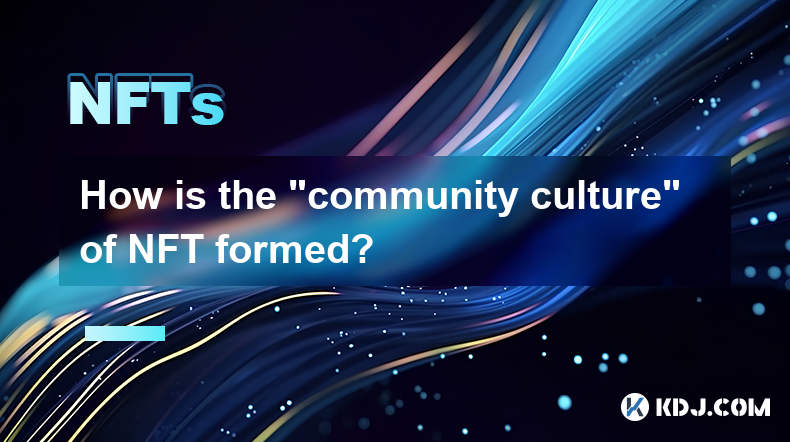
How is the “community culture” of NFT formed?
Apr 03,2025 at 11:07am
The formation of the 'community culture' within the NFT (Non-Fungible Token) space is a fascinating and multi-faceted process. It involves various elements such as shared interests, active engagement, and the creation of a sense of belonging among members. NFT communities often revolve around specific projects or artists, fostering a unique environment ...
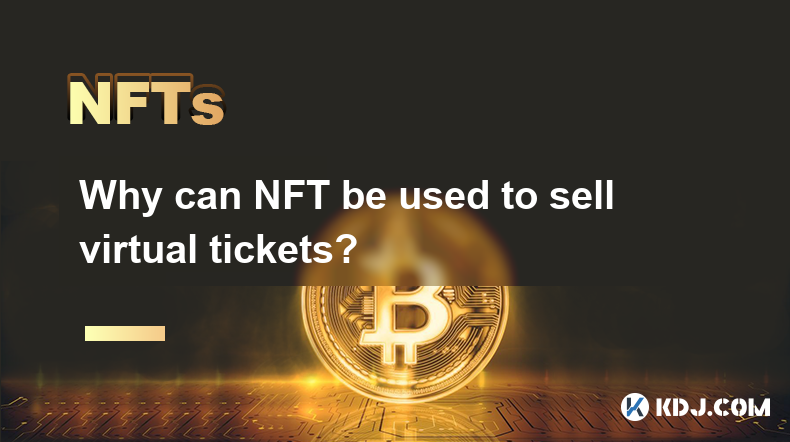
Why can NFT be used to sell virtual tickets?
Apr 03,2025 at 01:35pm
NFTs, or Non-Fungible Tokens, have revolutionized the way we think about digital ownership and value, particularly in the realm of virtual tickets. The primary reason NFTs can be used to sell virtual tickets is their unique nature. Unlike cryptocurrencies such as Bitcoin or Ethereum, which are fungible and can be exchanged on a one-to-one basis, NFTs ar...
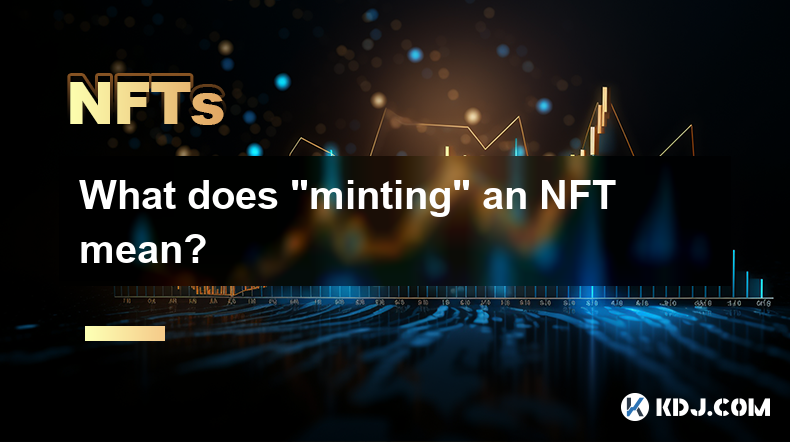
What does “minting” an NFT mean?
Apr 03,2025 at 01:28pm
Minting an NFT, or Non-Fungible Token, refers to the process of creating and publishing a unique digital asset on a blockchain. This process transforms a digital file into a blockchain-based asset that can be owned, bought, sold, or traded. The term 'minting' is borrowed from the traditional concept of producing coins, symbolizing the creation of someth...
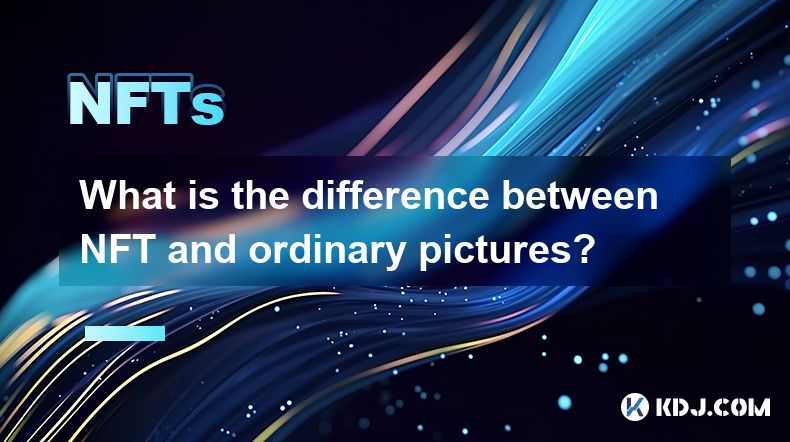
What is the difference between NFT and ordinary pictures?
Apr 03,2025 at 02:07pm
The world of cryptocurrency has seen a significant rise in the popularity of Non-Fungible Tokens (NFTs), which often leads to confusion about what sets them apart from ordinary pictures. In this article, we will delve into the key differences between NFTs and regular images, exploring their unique features, applications, and implications within the cryp...

How do smart contracts in the NFT secondary market work?
Apr 03,2025 at 07:14am
Smart contracts play a pivotal role in the NFT secondary market, facilitating seamless transactions and enforcing predefined rules. These self-executing contracts with the terms of the agreement directly written into code are stored on the blockchain. In the context of NFTs, smart contracts automate the buying, selling, and transferring of digital asset...

How can the NFT secondary market prevent fraud and money laundering?
Apr 03,2025 at 08:35am
The NFT secondary market has become a thriving hub for digital art and collectibles, but it also faces challenges in preventing fraud and money laundering. To tackle these issues, the market can implement various strategies and technologies to ensure a safer and more transparent trading environment. This article will explore how the NFT secondary market...

How is the “community culture” of NFT formed?
Apr 03,2025 at 11:07am
The formation of the 'community culture' within the NFT (Non-Fungible Token) space is a fascinating and multi-faceted process. It involves various elements such as shared interests, active engagement, and the creation of a sense of belonging among members. NFT communities often revolve around specific projects or artists, fostering a unique environment ...

Why can NFT be used to sell virtual tickets?
Apr 03,2025 at 01:35pm
NFTs, or Non-Fungible Tokens, have revolutionized the way we think about digital ownership and value, particularly in the realm of virtual tickets. The primary reason NFTs can be used to sell virtual tickets is their unique nature. Unlike cryptocurrencies such as Bitcoin or Ethereum, which are fungible and can be exchanged on a one-to-one basis, NFTs ar...

What does “minting” an NFT mean?
Apr 03,2025 at 01:28pm
Minting an NFT, or Non-Fungible Token, refers to the process of creating and publishing a unique digital asset on a blockchain. This process transforms a digital file into a blockchain-based asset that can be owned, bought, sold, or traded. The term 'minting' is borrowed from the traditional concept of producing coins, symbolizing the creation of someth...

What is the difference between NFT and ordinary pictures?
Apr 03,2025 at 02:07pm
The world of cryptocurrency has seen a significant rise in the popularity of Non-Fungible Tokens (NFTs), which often leads to confusion about what sets them apart from ordinary pictures. In this article, we will delve into the key differences between NFTs and regular images, exploring their unique features, applications, and implications within the cryp...
See all articles























































































